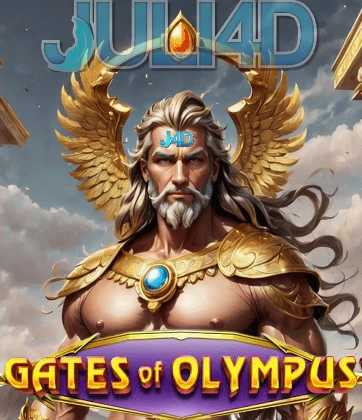Daftar Slot Demo X500
Main Slot Demo X500: Akun Demo Gratis Pragmatic Play No Deposit Jamin Maxwin
Main Slot Demo X500: Akun Demo Gratis Pragmatic Play No Deposit Jamin Maxwin
Couldn't load pickup availability
| Nama Situs : | Juli4d |
| Provider Demo Slot | Pragmatic Play, PG Soft, Habanero |
| Game Slot Demo | Gates of Olympus, Starlight Princess, Spaceman, Gates Of Gatotkaca |
| Jam Operasional | 24/7 |
| Rekomendasi : | ⭐⭐⭐⭐⭐ |
Main Slot Demo X500: Akun Demo Gratis Pragmatic Play No Deposit Jamin Maxwin
Selamat datang disitus penyedia Akun Demo Slot pragmatic play Indonesia yang memberikan jamin maxwin terpercaya. Dimana jika slotmania mencari situs yang memberikan provider terlengkap dan terpopuler seperti Pragmatic Play, PG Soft, Habanero dan masih banyak lainnya. Maka kalian sudah datang ke halaman situs yang sangat tepat. Dengan ini kami ingin mengenalkan situs halaman situs kami yang memberikan layanan dan fitur yang sangat tergacor saat ini seperti demo slot provider pragmatic play sehingga para bettor bisa menjelajahi seluruh game play pragmatic slot demo tergacor dengan mudah dan menemukan maxwin jutaan upiah hingga ratusan juta rupiah setiap hari tanpa mengeluarkan uang sedikitpun.
Main Slot Demo x500 wajib dengan menggunakan link slot gacor pragmatic play. Karena provider slot demo gratis pragmatic play no deposit dapat dimanfaatkan seluruh pemain yang ingin bermain game pragmatic play slot gacor tanpa takut kehilangan uang. Tentunya link slot pragmatic play menyediakan berbagai fitur grafik tampilan yang sangat memukau dan menyediakan hadiah kemenangan maxwin paling besar yang bisa kalian dapatkan secara gampang. Terlebih lagi slotmania bisa main akun demo pragmatic play Indonesia untuk merasakan kegacoran demo slot x500 dan slot demo x1000. Jadi para slotters sangat disarankan untuk main slot demo gratis pragmatic play no deposit dengan agen slot pragmatic play terpercaya dan resmi yang memberikan jaminan keamanan bertransaksi seperti kami berapapun kemenangan kalian akan dibayar secara penuh tanpa ribet.
Akun Demo Slot Pragmatic Play Dengan Grafis High Quality
Akun Demo Slot pragmatic play telah menjadi pilihan banyak petaruh slot online di Indonesia. Karena akun demo gratis pragmatic play no deposit memberikan keuntungan yang sangat besar seperti salah satunya dengan tampilan grafis high quality. Terlebih lagi dengan demo slot provider pragmatic play menyediakan ratusan game slot pragmatic play dan fitur terlengkap yang dapat kalian nikmati untuk mednapatkan kesempatan jackpot maxwin secara mudah. Jadi sudah tidak diragukan lagi jika akun demo slot pragmatic play Indonesia menjadi incaran banyak slotmania di Indonesia.
Terlebih lagi didalam permainan slot online gacor pragmatic play kalian bisa memilih fitur dengan uang asli ataupun gratis (Demo). Layanan ini tentu menjadi suatu keunggulan yang bisa dirasakan slotmania untuk mencoba seluruh game demo slot pragmatic play secara gratis tanpa menggunakan uang sama sekali. Sehingga provider pragmatic play sudah diakui sebagai salah satu provider penyedia game slot pragmatic terbaik di asia hingga saat ini.
Dijaman sekarang ini perkembangan teknologi semakin canggih. Tentunya hal ini membuat para penikmat akun demo slot pragmatic play Indonesia menjadi lebih cepat mengetahui seluruh informasi demo slot terbaru di internet dengan sangat gampang. Namun untuk pemain yang tertarik ingin merasakan kegacoran dari seluruh fitur slot demo gratis pragmatic play no deposit rupiah Indonesia, anda harus pandai dalam memilih link slot pragmatic play seperti kami. Jadi untuk memudahkan member play slot demo pragmatic kami selaku penyedia slot demo pragmatic play anti rungkad yang sudah terjamin aman dan terpercaya dapat kalian manfaatkan sebagai situs utama dalam bermain game demo slot pragmatic play serta juga menyediakan layanan terbaik untuk seluruh player slot online di Indonesia.
Daftar Slot Demo X500

- Choosing a selection results in a full page refresh.
- Opens in a new window.

